
Is Feminism a Bad Word?
 Younger women start their sentences with, “I’m not a feminist, but...” Then they get older, and guess what? [Read more…]
Younger women start their sentences with, “I’m not a feminist, but...” Then they get older, and guess what? [Read more…]
A Great Tool for the New Year
I always feel energized by the arrival of a new year. It’s like a clean slate, twelve sprawling months ahead for reaching my dreams. Do you feel that way, too?
If so, maybe I can help by sharing my own plans and a great book recommendation. My goals are to lose weight and become a best-selling author in 2014, which is the year I turn sixty.
Hey, a girl can dream.
Re: the weight loss, I’m a recidivist Lifetime member of Weight Watchers. I like the program because they taught me how to eat during the craziness of menopause. But I’m not plugging them – any program you stick to will work. So, how do you do that?
To prepare myself, I picked up a great book, The Power of Habit by Charles Duhigg. In it, I learned:
- Habit is more powerful than addiction
- Your brain resorts to habit because it conserves energy, which is then freed up for survival
- Scientists now agree on proven strategies for developing new habits or changing old ones.
To change an old habit, Duhigg reports, you learn to recognize the cue that triggers the routine that leads to the reward. Then you leave the cue and reward alone, and change the routine. In other words, you don’t try to rewire your brain not to want what it wants – you just go about getting to the reward a different way.
This intrigues me. To test the theory (so you don’t have to), I’m going to work on one of my worst habits: I crave a glass of wine around 3 p.m., which usually leads to a cascade of consequences like eating too much for dinner, etc. That’s an old habit I need to change.
On the other hand, creating a new habit, Duhigg says, requires a slightly different approach. You create a cue and reward (which must be cultivated into a craving). Then the routine connecting the cue and reward is the desired practice, like exercise or meditation. In other words, in order to create a new habit of meditating, I’ll have to invent a cue and reward that make me want to repeat the routine.
I know this is vague but why load you up with details before I test drive the theories? But if they work, how cool if you could develop a foolproof strategy for making yourself into the person you’ve always wanted to be? The future would be unlimited!
So here’s my plan: I’m going to get started, and right around the first of January, I’ll report back to you about my degree of initial success, so you can decide whether Duhigg’s methods hold promise for you.
As for the best-selling author plan, I’ll be working on some strategies (like better time management, and daily meditation to enhance my creativity). One thing I’m not very good at is asking for help, so here goes:
If you read Dakota Blues, and liked it, would you mind telling a friend? And if you haven’t yet tried it, I’m getting really good reviews on Amazon, so you might want to check it out. People say it’s empowering, inspiring, and joyful. Also, it contains tips, strategies and wisdom, delivered in story form, for living your best life after fifty. Here’s the link, and I hope you love it.
What are you planning for 2014? Why don’t you share your aspirations in the comments below?
Miley Cyrus: Ink Blot
Miley Cyrus, former Disney child star, turned in a shockingly slutty performance a few days ago at the Video Music Awards on MTV. Talk shows and cable news responded immediately. Some people are calling for censorship. Parents are outraged. Feminists are baffled. Celebrities are laughing.
Anaïs Nin once said, “We don’t see things as they are. We see things as we are.” That video is like a Rorschach test for America. If you didn’t see it, here’s a glimpse of the talent.
Here’s Miley advancing her career at the recent VMA Awards.
Here’s another shot for the family album:
On the Today show, Matt Lauer and Star Jones were trying to tell Mika Brzezinski that this is what girls think they have to do to make money and have a high celebrity profile, and that’s the saddest part of the whole thing. Mika, whom I like, was too busy ranting to hear that message, wanting only to have the performance banned or censored – I am not really sure of her point, she was so upset and everybody was yelling. I mean, it’s MTV. What did she expect?
Anderson Cooper posted a smirky essay about how boring Miley’s performance was, in that there was nothing new and she’s banal. Which is true but also kind of scary. What’s a girl singer going to have to do to get attention in the future? Film at the zoo?
Some were angry that nobody’s angry at Robin Thicke, that we’re all a little too quick to criticize Miley and not him. Okay, I’ll start.
What’s with the outfit, Robin? Channeling Beetlejuice?
Some people have expressed compassion for Miley, because she apparently was raised by wolves and doesn’t know any better. I was surprised to find many erotic photos of her on the web, going back a few years. Well, very few; she’s only twenty. But anyway, you’d think she was a porn star, not a little girl who sings.
Some have mentioned there’s a feminist aspect to this. That Miley is a grown woman, and she should be able to do what she wants with her body, even if what she does sets us back a million years. But then if we’re going for equality, I say Robin Thicke should be wearing a g-string instead of assuming the power position while Miley approximates Downward Dog.
In my opinion, which matters only to me, they’re both kind of trashy, but it’s what the public pays to see. I’m trying to think of what to tell my granddaughters. “Yes it’s true that in 2013, Miley Cyrus had a net worth of $150 million. She has yachts, houses, cars, and the very best in health care, but nobody respects her, and she is really a very sad person.”
I don’t want my granddaughters to grow up thinking society only values them for their girly parts, but if they manage to overcome that in this sick culture, it’ll be a miracle of good parenting.
As an Adult American, how do you see this? What do you think?
We Look Old? Big Deal.
Are We Allowed to Slow Down in Retirement?
Several years ago, a friend and I were talking about what we would do after we “retired.” I wanted to start a new career writing, teaching part-time, doing public speaking gigs, and blogging. She wanted to start a preschool! After decades at our corporate jobs, this was how we viewed retirement.
I was reminded of our conversation as I read the excellent book Retiring but not Shy, by Ellen Cole and Mary Gergen. The book is a collection of essays by women psychologists on the subject of their own retirement. Although some essays were by women who retired a while back, the ones I found most troubling were by those who were either considering retirement or had recently retired.
Like my friend and I, these bright, well-educated women had laundry lists of all the incredible new tasks and initiatives they would undertake. Retirement meant converting from busy/busy to busy/busy. Beyond financial security, many seemed afraid that giving up their jobs meant they would no longer “matter.” These stellar professionals, some of minority ethnicity, feared being marginalized by society after retirement.
Especially for us feminists, it’s hard to imagine walking away from the battlefield. We struggled against the social tide for those degrees, titles, professions and salaries. The achievement of professional stature became our our identity, our source of power, our protective shield.
When I gave up my profession, I didn’t feel special anymore, and looking back, this was where my post-retirement life got interesting. I found myself tackling some heavy questions.
- Did I have value to society without my work? Does anybody?
- Did I fear a judgment I’d attached to others who didn’t work? (As a society, this question has implications with elders as well as stay-at-home parents.)
- Would I ever have the confidence not to work? To give up positional power? To still see myself as special, even without the hard-won mantle of office?
Ultimately, the greatest triumph of my sixth decade was gaining a sense of self-worth exclusive of my profession. To value myself without the suit and heels meant I had to view the rest of society in a more forgiving way. to look beyond the uniform and titles – or lack thereof.
In the book, one of the writers asks: if work equates to feminism and independence, to what does retirement equate?
I have come to see retirement as a time of enlightenment and the letting go of ego.
One writer says “I believe that even in retirement women must contribute to make a difference, to be perceived as powerful and to have power.” But powerful in whose estimation? We cannot make society respect us – we can only respect ourselves. And as for feminist battles, can’t we just model feminist principles as we putter in the yard, go to church, or help out down at the shelter? Why do we need to start a new national/international effort toward whatsis?
Will we ever accept that we are good enough?

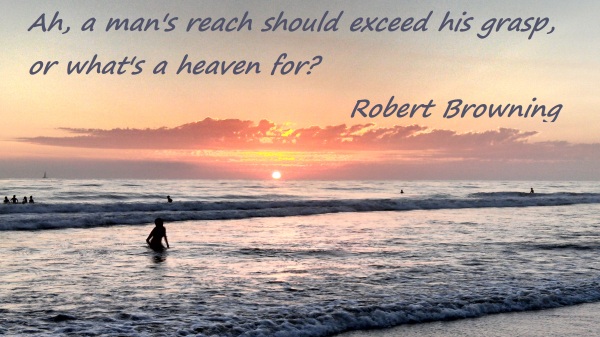
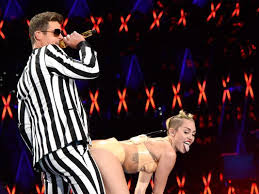
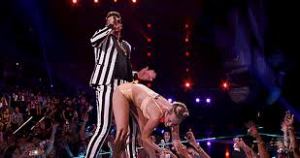

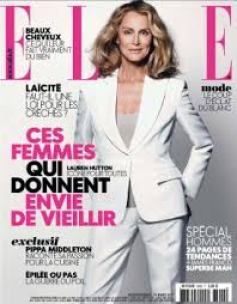
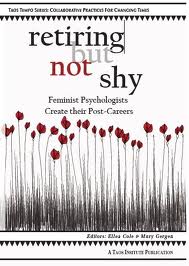






Recent Comments